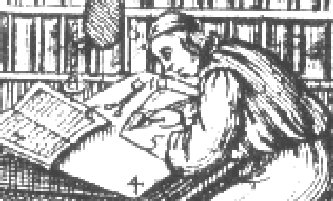| <shift> |
(Shift)
marks the point at which some paralinguistic feature of a series of
utterances by any one speaker changes. |
| Attributes |
(In addition to global attributes
and those inherited from comp.spoken)
| who |
supplies an identifier for the speaker or group of speakers
whose shift in some feature is being noted.
Its value is the identifier of a <participant>
or <participant.grp> element in the TEI header. |
|
Datatype: IDREF |
|
Values: Must identify a participant or participant group within the
TEI
Header |
|
Default: #IMPLIED |
| feature |
(feature)
a
paralinguistic feature. |
|
Datatype: (tempo | loud | pitch | tension | rhythm | voice) |
|
Legal values are:
| tempo |
speed of utterance.
|
| loud |
loudness.
|
| pitch |
pitch range.
|
| tension |
tension or stress pattern.
|
| rhythm |
rhythmic qualities.
|
| voice |
voice quality.
|
|
|
Default: #REQUIRED |
| new |
(new state)
specifies the new state of the paralinguistic feature specified. |
|
Datatype: CDATA |
|
Values: An open list (for an example of possible values, see
11.3.2 Synchronization and Overlap) |
|
Default: normal |
| Note |
If no value is specified, it is assumed that the feature
concerned ceases to be remarkable. The value ‘normal’ has the same
effect.
|
|
| Example |
<u who="LB"><shift feature="loud" new="f"/>Elizabeth</u>
<u who="EB">Yes</u>
<u who="LB"><shift feature="loud"/>Come and try this
<pause/><shift feature="loud" new="ff"/>come on</u>
The word ‘Elizabeth’ is spoken loudly, the words ‘Yes’ and
‘Come and try this’ with normal volume, and the words ‘come on’
very loudly.
|
| Module |
Declared in file teispok2; Base tag set for Transcribed Speech: enabled by TEI.spoken
|
| Class |
comp.spoken
|
| Data Description |
empty |
| May occur within |
argument body castList div div0 div1 div2 div3 div4 div5 div6 div7 epigraph epilogue metDecl performance prologue set u |
| Declaration |
<!ELEMENT shift %om.RO; EMPTY>
<!ATTLIST shift
%a.global;
who IDREF #IMPLIED
feature (tempo | loud | pitch | tension | rhythm | voice) #REQUIRED
new CDATA "normal">
|
| See further |
11.2.7 Formal Definition; 11.2.6 Shifts; 11.2 Elements Unique to Spoken Texts
|
